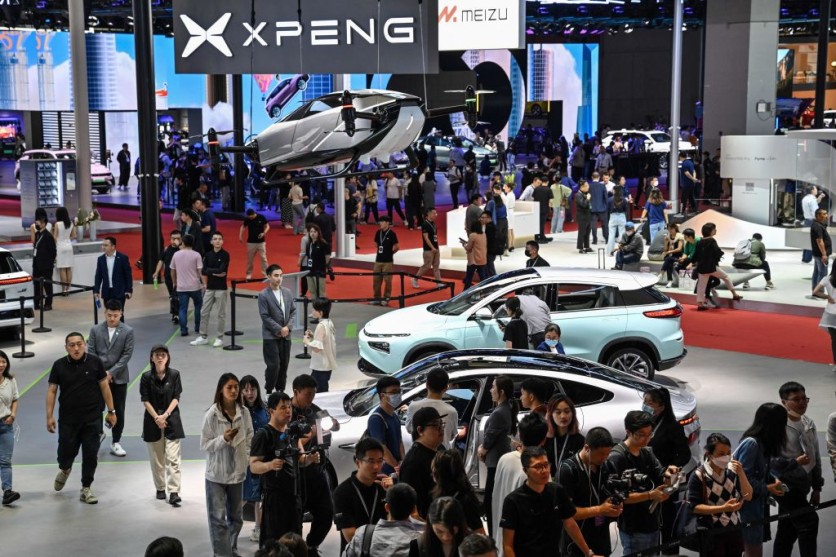Chinese electric vehicle (EV) maker Xpeng announced its expansion plans, seeking to recruit 4,000 new workers and spend heavily on artificial intelligence (AI) technology in 2024.
Xpeng CEO He Xiaopeng noted in a staff letter on Sunday about the EV industry's "bloodbath" competition. He noted that to remain viable, Xpeng will invest 3.5 billion Chinese yuan ($486.2 million) in AI research and development, focused on "intelligent driving." Xpeng's Xpilot driver assistance technology allows semi-autonomous driving, as reported by CNBC.
He Xiaopeng also announced intentions to introduce 30 new or enhanced automobile models over the next three years. Xpeng plans to launch its initial models in the 300,000 yuan ($41,600) and 150,000 yuan ($20,837) prices this year.

(Photo: HECTOR RETAMAL/AFP via Getty Images)People visit an Xpeng booth during the 20th Shanghai International Automobile Industry Exhibition in Shanghai on April 19, 2023.
Different Approach Amid Intensifying Competition
Xpeng's deliveries, a critical sales indicator, have improved after a tough start last year. Xpeng is optimistic despite a Tesla-sparked pricing war in China's electric car sector.
Considering the competition, He Xiaopeng called 2024 the start of a "knockout round" for Chinese manufacturers. He was confident in Xpeng's expertise and dedication, saying, "Our guts, grit, and perseverance, I firmly believe, will lead us to victory."
As demand in the world's biggest car market falls, Xpeng's development ambitions contrast with its competitors' cost-cutting. In November 2023, Nio, another major Chinese EV producer, cut 10% of its workers to improve efficiency amid rising competition.
China's EV Charging Infrastructure Expanding
In recent developments in the EV industry that TechTimes reported, Toyota announced a $1.3 billion investment in its Georgetown, Kentucky, industrial complex to produce a three-row electric SUV for the US market. This is part of the company's electrification plans, which include installing a battery cell assembly factory for additional electric vehicles.
Despite the large expenditure, the plant, which employs almost 9,400 people, will not expand employment. Toyota has spent approximately $10 billion on the Kentucky facility, demonstrating its commitment to high-quality car production and employment security.
In January, China's growing EV charging infrastructure industry was highlighted by the agreement between battery manufacturer CATL and DiDi, a major ride-hailing company, to develop battery-swapping technology.
The joint venture promotes sustainable transportation by improving public EV charging efficiency. SCMP reports that CATL and Didi will use their technical and operational expertise to service DiDi's EV fleet. CATL is optimistic about battery-swapping services, particularly in public transit, with a huge user base and frequent charging.

ⓒ 2025 TECHTIMES.com All rights reserved. Do not reproduce without permission.




